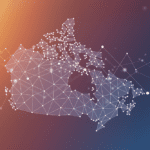(Français à suivre)
The COVID-19 pandemic has shown us persuasively that openness and collaboration in scientific research are essential in combating the world’s greatest challenges.
When Chinese researchers shared the genetic sequence of the novel corona virus, it gave scientists around the world a kickstart and empowered the drive to develop possible vaccines and treatments. The subsequent release of previously protected scientific papers as well as a flood of preprint publications on the virus gave the effort a further boost. The process exemplifies what proponents see as one of the major benefits of “open science,” a concept that advocates for greater access to scientific publications, data, and software.
But the unfolding of the pandemic has also revealed the need to maintain scientific rigour and encourage trust in scientific evidence.
“The challenges of accuracy and trust have, in fact, been magnified by the fire-hose deluge of data and information,” says Michael Donaldson, Open Science Lead at Canadian Science Publishing, the non-profit behind the country’s leading science journals.
Fortunately, a powerful initiative to address this blend of issues and to do so within a coherent open science agenda is already underway, and everyone can play a role in helping it succeed.
The United Nations Education, Science and Cultural Organization (UNESCO) is actively crafting a formal UNESCO Recommendation on Open Science. The proposed statement would articulate internationally shared values and basic principles, point to concrete measures on open access and open data, and support a better distribution of science in the world.
In a way, such a statement from UNESCO merely coalesces a movement that has been gaining momentum for many years. Many see open science as a natural progression of the effort to promote collaboration that took root with the first scientific journals in the 17th century.
The recent drive for open science reflects a desire to renew the contract between science and society in the face of the so-called post-truth era and global issues such as climate change, income inequality, and, now, the pandemic. This growing interest in, and support for, open science is evidenced by new institutional, national, and multi-national programs, policies, and practices including: European projects such as the Amsterdam Call for Action on Open Science, the Budapest Open Access Initiative, and the EU’s Plan S; initiatives targeted at Latin America and Africa; and pronouncements by a variety of international organizations.
UNESCO, as the UN agency dedicated to science cooperation and the promotion of the human right to science, has had a long interest in open science. It unveiled a Strategy on Open Access to scientific information and research in 2011 and later launched a Global Open Access Portal (GOAP). The revised UNESCO Recommendation on Science and Scientific Researchers, adopted in 2017, included numerous provisions on open science as well.
A unique UNESCO Recommendation on Open Science would build on this work by setting out globally agreed upon standards to guide state-level legal and policy frameworks. To this end, a Roadmap toward the adoption of such a Recommendation was approved at the UNESCO Global Conference in Paris in November 2019.
But UNESCO Recommendations require support from all UN Member States who are, in turn, asked to apply them in policy, practice, and law. While this gives a UNESCO Recommendation particular status, the process needs to acknowledge Member–State autonomy and can only gain global support if all states are engaged and have an opportunity to provide input. UNESCO has thus embarked upon the international consultation plan set out in the Roadmap, and member states and UNESCO national commissions have been called upon to provide input that reflects the interests of their communities.
It is clear that Canada would be well served by a national consensus on the relevant issues: one that is informed by multi-stakeholder consultations that involve scientists, research institutions, government, civil society, Indigenous groups, and youth. To this end, the Canadian Commission for UNESCO (CCUNESCO) has prepared a background paper (Toward a UNESCO Recommendation on Open Science: Canadian Perspectives) to help stakeholders consider the issues.
The Canadian paper not only reflects input from open science experts, but also the CCUNESCO Youth Advisory Group (YAG). The Canadian Commission for UNESCO actively advocates for young people as key partners in its programs and through the YAG, it has developed a highly regarded model for youth engagement. YAG members, who represent every region in Canada, participate in CCUNESCO initiatives in their communities as well as national projects such as that embraced by the CCUNESCO open science paper.
“Our concept of open science goes far beyond access to journals and data,” says the paper’s co-author Ella Chan, a University of British Columbia student and YAG member. “It can include the movement to involve more non-expert citizens in the scientific process, the use of social media, and a range of science communications activities.”
Through this, CCUNESCO hopes that a shared Canadian perspective can be clarified, articulated, and fed into the UNESCO deliberations. But individuals or representatives of Canadian organizations can take part immediately by participating in the UNESCO consultation survey, recently updated to include COVID-19 issues.
“It is clearly time for a global consensus on open science,” says Liette Vasseur, President of CCUNESCO in releasing the Canadian background paper. “All of us with an interest in science, whether as a researcher, student, educator, policy maker, communicator, or participant in the publishing process, have an obligation to help make this happen—now is the time to speak up.”
Those interested in contributing to the Canadian consultations can contact ccunesco@ccunesco.ca.




